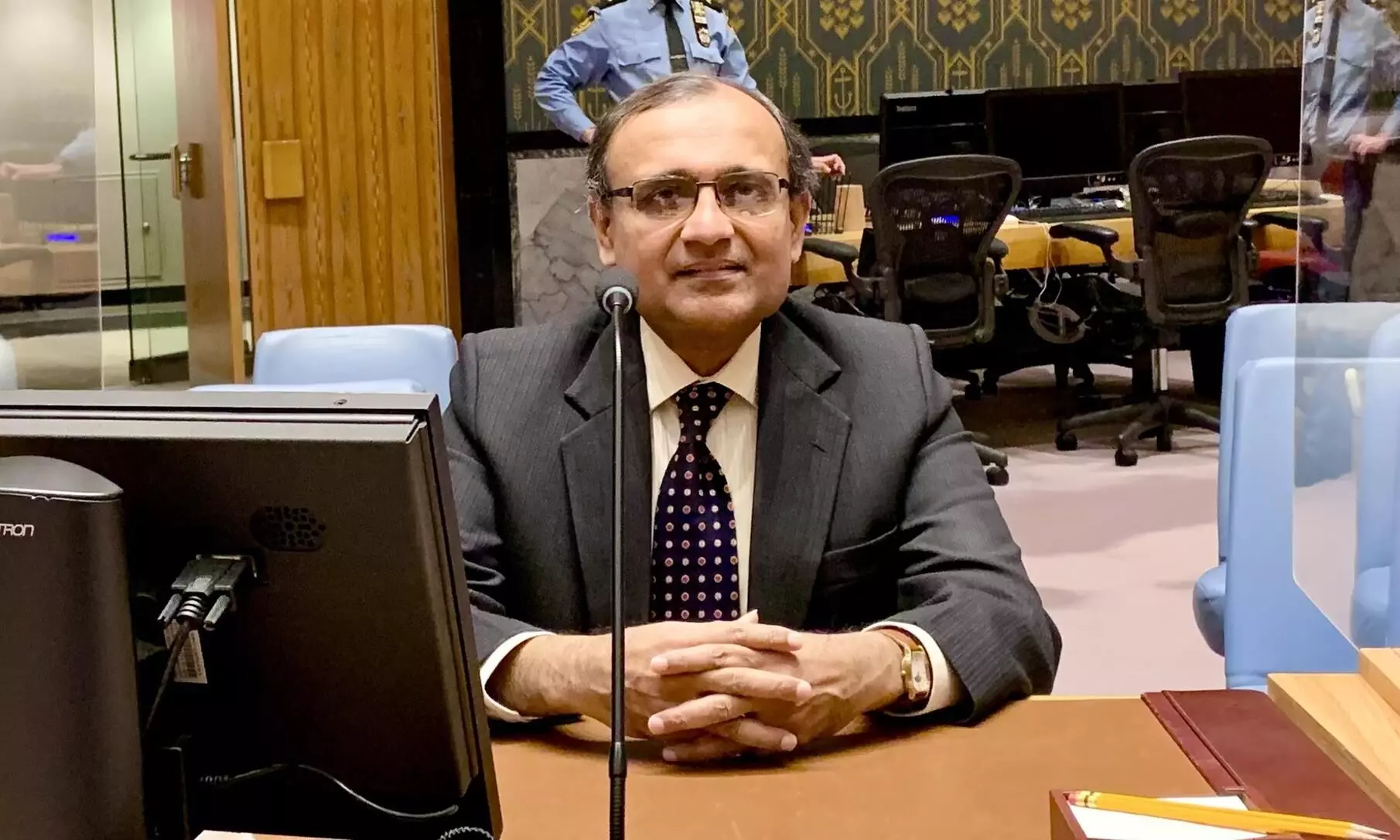
Terrorist outfits rebranded as charities: India at UN
text_fieldsThe Indian Permanent Representative at the United Nations Open Debate made veiled criticisms of Pakistan, pointing out that terrorist groups "in the neighbourhood" evaded sanctions by rebranding themselves as charity groups. Therefore it was important to exercise due diligence while providing humanitarian carve-outs, especially in cases where terrorism finds safe-havens, India's Ambassador T.S. Tirumurti was quoted as saying by PTI.
Speaking at a UN Security Council Open Debate Tirumurti said there have been examples of terrorist groups taking full advantage of humanitarian carve-outs, "making a mockery of sanction regimes," including that of 1267 Al Qaeda Sanctions Committee.
"There have also been several cases of terrorist groups in our neighbourhood, including those listed by this Council, re-branding themselves as humanitarian organisations to evade these sanctions," he said, making a reference to terror organisations based in Pakistan.
Mumbai terror attack mastermind Hafiz Saeed-led Jamaat-ud-Dawa has a charity wing Falah-e-Insaniat Foundation. In 2019, these were banned by Pakistan amid intense global pressure to rein in the terror groups following the Pulwama terror attack that killed 40 CRPF soldiers. Saeed was listed under UN Security Council Resolution 1267 in December 2008.
In November last year, the Lahore High Court had acquitted six members of the Jamaat-ud-Dawa in a terror financing case, as well as setting aside life imprisonment for five.
India's UN ambassador said while the sanction regimes have served well in the global fight against terrorism, preventive diplomacy efforts, assisting member states in implementing peace agreements and against the proliferation of weapons of mass destruction, the regimes must not be an end in themselves.
In addition to his, the UN often faced non-cooperation from member states as well as challenges posed by humanitarian groups requesting leeway or questions on how the Experts Panel functioned, the ambassador pointed out. However the UN also needed to be more realistic and transparent in its sanctions process, he added.
"These terrorist organisations use the umbrella of the humanitarian space to raise funds, recruit fighters and even use human shields. Under the garb of the humanitarian cover provided by such exemptions, these terrorist groups continue to expand their terror activities in the region and beyond. Due diligence, therefore, is an absolute must," he said.























